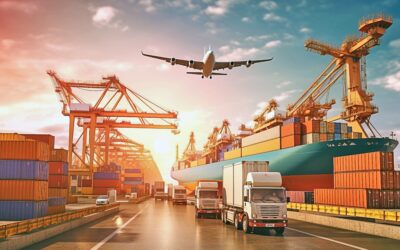VAT With Or Without A Deal

After last week’s acceptance of Boris Johnson’s deal in parliament, the EU followed up by agreeing a further extension to Brexit until 31 January 2019.
While the deal was approved in principle, all options remain firmly on the table as parliament can still fail to get final approval over the line. Amendments are expected to be tabled and voted on, if successful the deal with go to the House of Lords for ratification and then return to the House of Commons for a final vote.
So, while last week appeared to indicate progress, we still cannot dismiss the chance of the UK leaving the EU without a deal in place. Therefore, below is a summary of how businesses trading with Europe will be expected to handle VAT in both scenarios:
Deal
If the UK leaves the EU with a deal, a VAT system is expected to come into effect aiming to retain procedures as close as possible to the way they currently are. Whereby, VAT is charged by businesses when they import goods into the UK – there are different rules depending on whether the goods originate from an EU or non-EU country
Goods that are exported by UK businesses to EU businesses are zero-rated, meaning that UK VAT is not charged at the point of sale. Goods that are exported by UK businesses to EU consumers have either UK or EU VAT charged, subject to distance selling thresholds.
No Deal
If the UK leaves the EU without an agreement, the government plans to introduce postponed accounting for import VAT on goods brought into the UK. This means that UK VAT registered businesses importing goods to the UK will be able to account for import VAT on their VAT return, rather than paying import VAT on or soon after the time that the goods arrive at the UK border. This will apply both to imports from the EU and non-EU countries.
For exports, VAT registered UK businesses will continue to be able to zero-rate sales of goods to EU businesses but will not be required to complete EC sales lists. Businesses will be required to retain evidence of export, which will be similar to that currently required for exports to non-EU countries. EU member states will treat goods entering the EU from the UK in the same way as goods entering from other non-EU countries with associated import VAT and customs duties due when the goods arrive into the EU.
The Government has prepared a technical notice detailing potential changes in each of these areas. If you haven’t already read it, you can view the full implication by visiting the government website HERE.
Customs Insights provide a range of customs related solutions including customs clearance, consultancy, Brexit planning and both AEO application and management. To talk to one of our customs specialists please email enquiries@customsinsights.co.uk or call 01304 211652.
Consultancy Services
Ensure compliance, resolve difficulties, manage efficiencies and reduce duty.
AEO Services
A range of AEO services including application support and management.
Specialist Customs Regimes
Compliance and assistance for the many specialist Customs regimes.
Consultancy Services
Ensure compliance, resolve difficulties, manage efficiencies and reduce duty.
AEO Services
A range of AEO services including application support and management.
More News…..
HMRC introduces charges for goods liable for SPS checks
Following the recent updates to the Customs Declaration Service (CDS) Export declarations which come into force on 4th March 2024, HMRC have introduced a common user charge and outlined the rates. All commercial movements of animal products, plants and plant products...
Changes Affecting Northern Ireland Traders: Action Required for Duty Deferment Accounts
HMRC is making significant changes that will affect Northern Ireland traders, and these changes could disrupt supply chains, especially in the crucial week before Christmas. Here are the key points to take away: 1. Linking Duty Deferment Accounts (DDA) to EORI...
Change in NCTS5 Implementation Date Announced
The Common Transit Convention (CTC) authority has extended the transition period for NCTS Phase 5 due to requests from several countries and industry submissions. After careful consideration, the UK has decided to adopt this extension, and the new implementation date...



